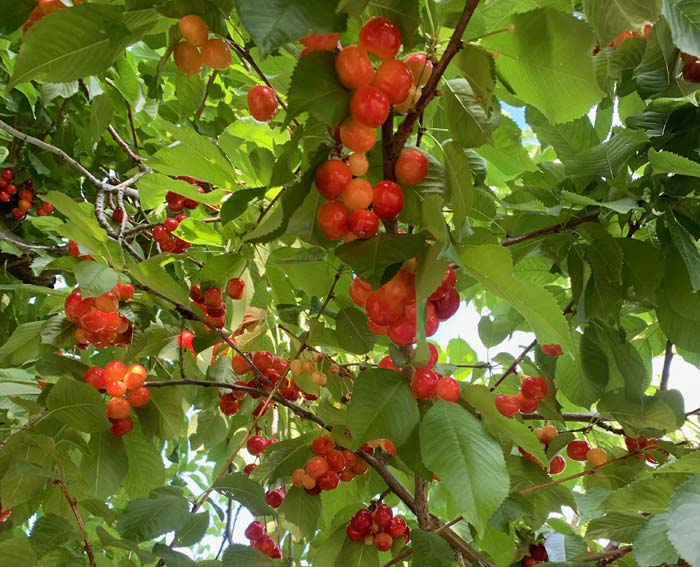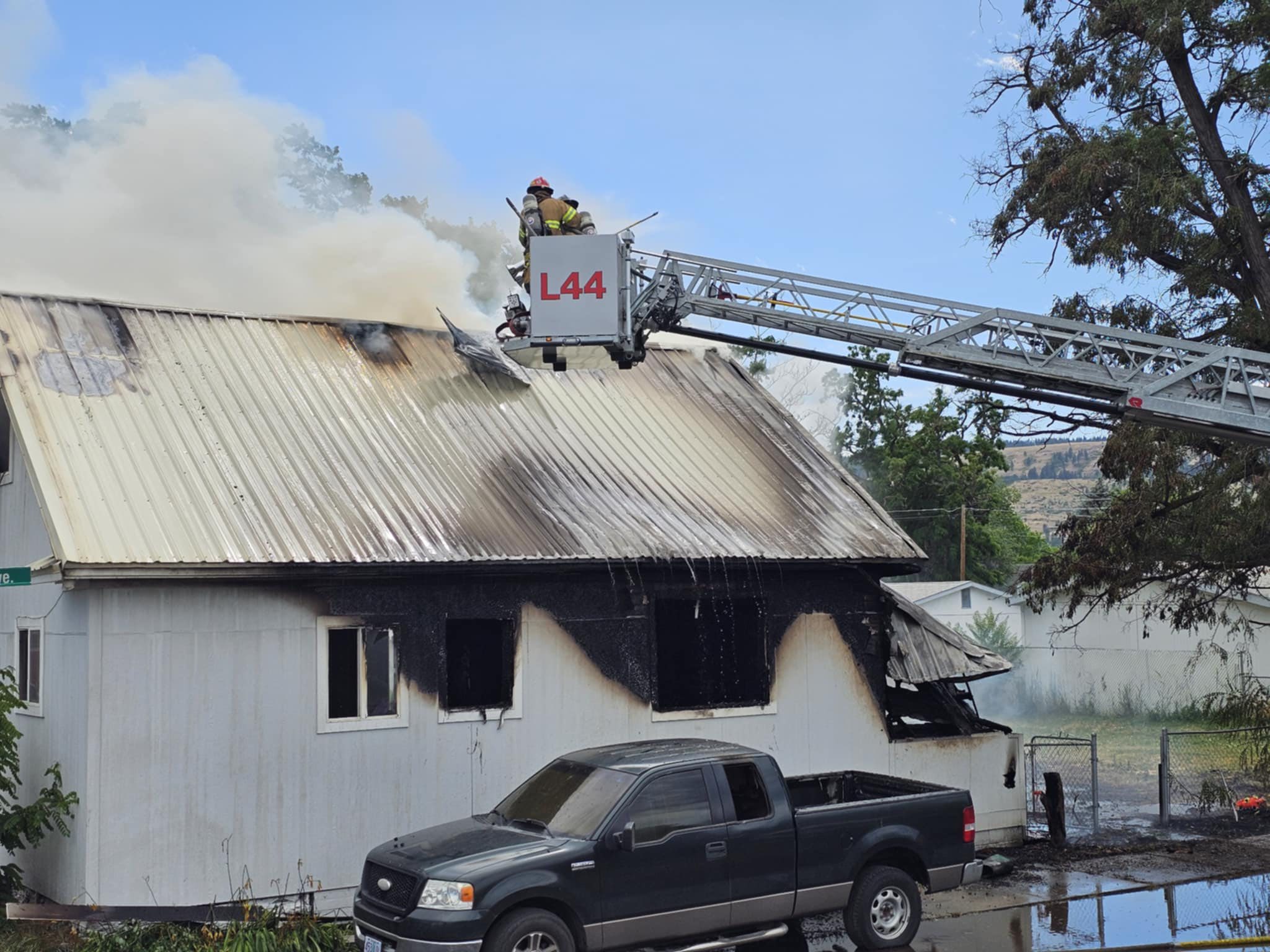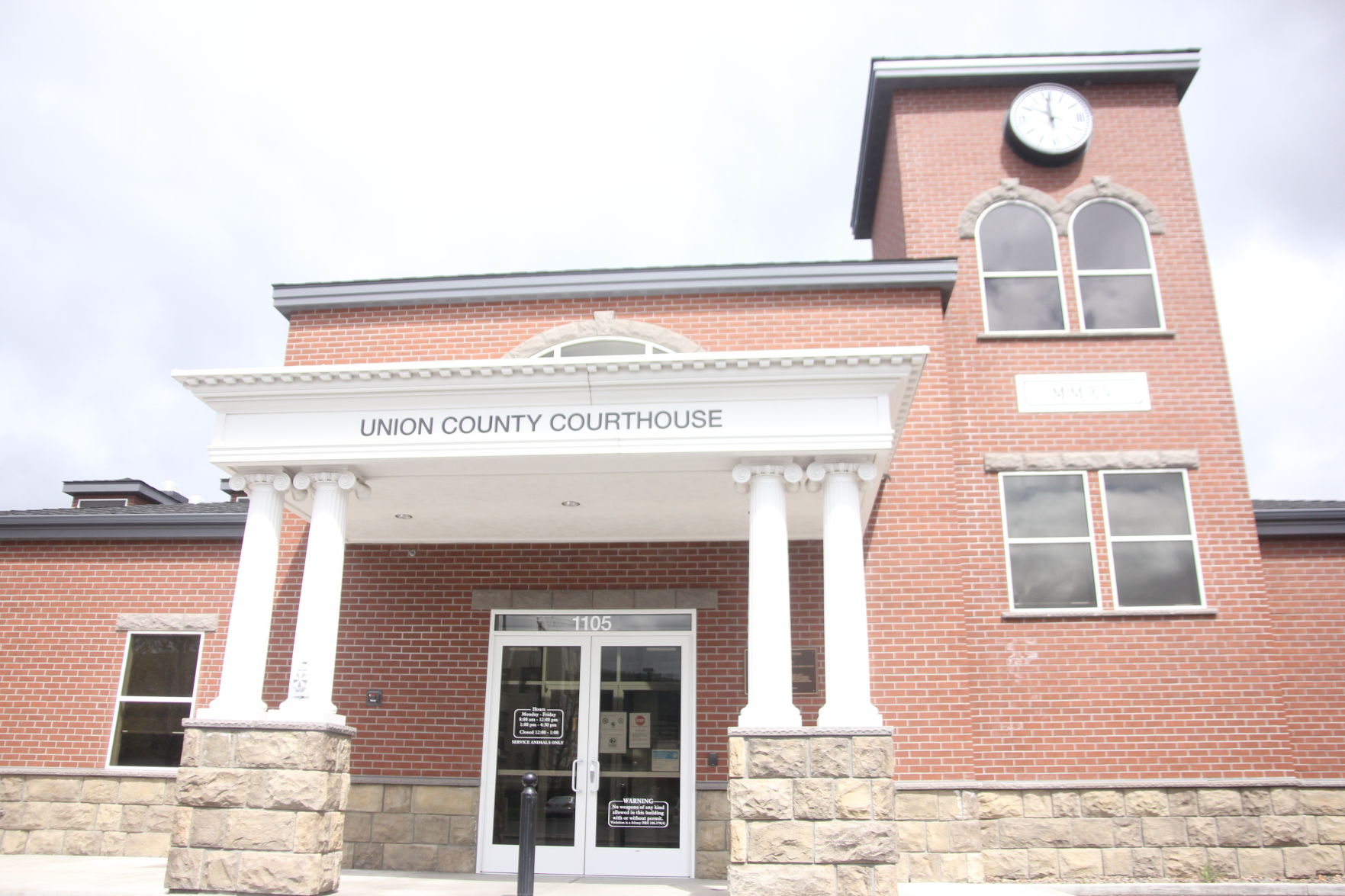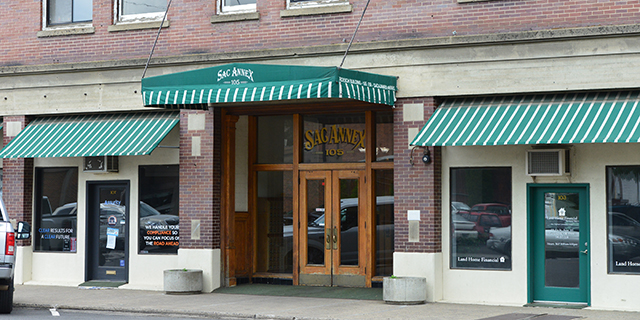Commercial cherry harvesters have ‘zero tolerance’ for fruit flies
Published 11:00 am Wednesday, August 2, 2023

- Rainier cherries are grown on Cove Cherry Farm, owned by Margie Lemke, who contributed this photo in 2023. Lemke has around 100 trees on a 3-acre property in Cove.
COVE — Before commercial cherries grown in Cove are exported to countries around the world, they must first pass the fruit fly test.
Data collected by the past Union County fruit fly inspector suggest an increased presence of fruit flies on commercial and privately owned cherry orchards in the area. In response to the trend, and without a fruit fly inspector amid the 2023 cherry season, Cove commercial growers encourage the community to routinely check for and spray their trees.
“We can spray all our stuff, but if, say the orchard next door, the neighbor next door, isn’t spraying and those fruit flies come in on something … if we get it in the fruit, it contaminates the (harvest) load,” said Amy Colvin, on-site manager for Monson Fruits, a fruit growing and packaging company that has a 100-acre orchard in Cove and owns Cove Cherries LLC.
The western cherry fruit fly, native to North America, was first reported attacking commercial cherry trees in the Pacific Northwest in the early 1900s, according to the Washington State University tree fruit website.
Now, the fruit fly is the main biological pest in Cove’s commercial orchards, which export to a handful of Pacific Rim countries, including Australia, Canada and China.
Rebecca Singer, the past Union County fruit fly inspector, placed fruit fly traps in seven cherry orchards — both commercial and privately owned — in Cove during previous years. She recorded a steady increase in flies per trap from 2020 to 2022.
When adult flies emerge — usually in May, about five weeks before the cherry harvest — they do all the usual fly things. They mate, and females lay their eggs in the ripening fruit, according to the WSU website. After about a week, the larvae hatch from the eggs and feed on the cherry from the inside.
Darrin Walenta, agronomist at the Oregon State University Extension Office, said cherry growers have “zero tolerance” when it comes to fruit flies in their crops, as other countries will not take the cherries if there is a chance fruit fly eggs or larvae will travel in the harvest load.
“Other countries that grow cherries and that we export to want to ensure that we’re not exporting pest problems to them,” said Mike Preacher, vice president of marketing for Domex Superfresh Growers of Yakima, Washington, which ships cherries for Cove Cherries LLC.
A full harvest load is 120 bins at 300 pounds of fruit per bin, Colvin said.
“If it’s not too bad, they can fumigate (the cherries) … but a whole load is, it’s a lot,” she said. “And chances are, if you got it in one part of your orchard, it’s probably everywhere.”
Pest management
Pesticides are used to combat the persistent flies.
Colvin said that Cove Cherries LLC is on a seven-day pesticide spray rotation this year, meaning that the orchard is divided into blocks, and each block is sprayed once a week.
“The sprays don’t work once the larvae have infected the cherries, so the goal is no cherry fruit flies in the orchard,” she said. “Due to outside pressure for cherry fruit fly we are on a much stricter spray schedule this year, with no room for variation. Ideally, we would have a little flexibility without concern.”
Colvin said having a Union County fruit fly inspector is sorely missed.
“Last season we would get a heads-up that something was trapped and which side of Cove it was on, so we had more information to work with,” she said.
On the upside, Colvin reported that no fruit fly larvae have been found yet during harvesting this year.
Margie Lemke, a cherry grower that does not commercially export, said fruit flies have never been a problem for her.
Lemke, who has co-owned Cove Cherry Farm for seven years, said her 3-acre parcel of land growing around 100 Rainier cherry trees was sprayed five times this season, which has kept the flies away.
“We notice (the fruit flies) before spraying. We’ll notice that they’ve gotten infested in the cherries, and then we spray, and we don’t have a problem because we spray like we’re supposed to.”
Lemke refers to the ordinance set in place by ORS 570.405 to 570.435, which mandates that select counties — including Union County — use integrated pest management recommended by OSU Extension, because the specified regions of Oregon are fruit fly control areas.
Wanted: inspector
Harvesters in Cove are hoping to prevent another spotted wing drosophila incident. SWD, an exotic fruit fly pest, was seen damaging ripening fruit crops in North America in 2009, according to an OSU Extension research paper.
Singer, the former fruit fly inspector, first reported the presence of SWD in Cove in 2020.
Colvin hopes that another Union County fruit fly inspector will be hired to report on things like damaged crops and fruit fly counts, and even just to provide an extra awareness in the region.
“I believe it is necessary, and not just for Cove, there are other orchards in the county, and plenty of people with back yard trees,” Colvin said. “If someone in La Grande has a cherry tree and brings cherries out to Cove for friends or family, that fruit is then being introduced into the area.”
Singer resigned as the Union County fruit fly inspector after the 2022 cherry season, and Walenta said the position was unable to be filled before the 2023 season began.
Moving forward, Walenta intends to assist in the hiring of a fruit fly inspector for next season. He said the first step in this process will be to hold a discussion with cherry orchardists and the Union County Board of Commissioners to reevaluate the position’s job description, and to see if any changes are necessary before advertising it.
Walenta advises that growers of any scale — or just anyone with a cherry tree on their land — should spray consistently throughout the cherry season, to prevent flies at any time.
“I think it helps folks to know that management is season-long, not just one event,” he said.
Colvin said that unmonitored trees can become “breeding grounds” for fruit flies.
“Remove the trees and plant something else, if you are unable to spray. There really is no other way,” she said.
“Chances are, if you got it in one part of your orchard, it’s probably everywhere.”
— Amy Colvin, on-site manager for Monson Fruits’ Cove Cherries LLC, referring to fruit flies









